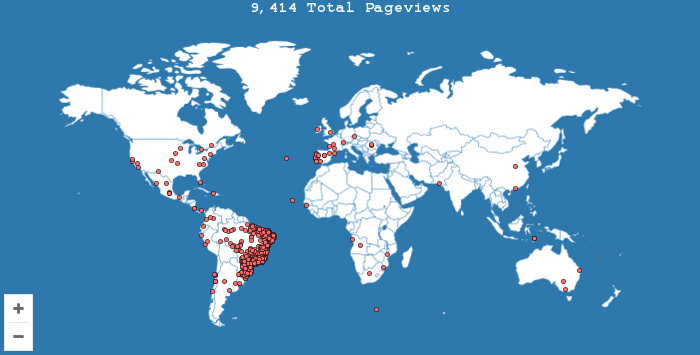About the Journal
Journal History
The Revista Profissão Docente (ISSN – 1519-0919) is a continuous-flow scientific journal, linked to the Graduate Program in Education at the University of Uberaba (UNIUBE). It publishes original works in the field of Education, from different theoretical and methodological perspectives, aiming to contribute to research and debates on themes that span regional, national, and international educational contexts. The journal accepts submissions of articles, interviews, reviews, documents, and experience reports, written in Portuguese, Spanish, or English, primarily addressing topics related to educational processes and their foundations, professional development, teacher training, teaching work, and teaching-learning processes in various contexts, levels, and modalities.
Launched in January 2001, the journal has since published annual issues featuring contributions to the field. In 2008, a restructuring process began to align with new regulatory standards. On the occasion of the journal's 10th anniversary in 2011, the Editorial Team made efforts to adapt it to the current editorial system (conducted through the SEER Platform and recommended by CAPES). For this purpose, all issues (from the first, in 2001) were standardized. The journal’s name, publication location, volume, issue number, start and end pagination, monthly period, publication year, and ISSN were included in the footer of each page. The files were then saved in Portable Document Format (PDF) and made available in the Electronic Journal Publishing System (SEER).
Moreover, the journal stands out for featuring articles by national and international researchers, ensuring 80% of publications come from external contributors outside UNIUBE. It adheres to reviewers' feedback to maintain the quality and originality of the published works. Supported by UNIUBE, the journal benefits from a high-tech electronic processing center that provides a secretary, IT services, proofreading, and formatting. In 2018, further changes were made to the editorial team, now led by Professor Dr. Marilene Ribeiro Resende. That same year, a new layout was introduced, and DOI identifiers were implemented for the journal's articles.
The journal can be accessed via the link: http://www.revistas.uniube.br/index.php/rpd. It uses the SEER/OJS platform and adheres to ABNT editorial standards. Each issue includes at least one article authored by scholars affiliated with recognized international institutions. The journal is indexed in Google Scholar, IBICT - Brazilian Institute of Information in Science and Technology - Cariniana Network, Latindex - Regional Online Information System for Scientific Journals of Latin America, the Caribbean, Spain, and Portugal, Periódico de Minas, CAPES Journal Portal, and Sumários.org.
In 2018, both scheduled volumes were published, upholding the principles of non-endogeny, visibility of scientific productions from Brazil's five regions, and international knowledge dissemination. Volume 18, Issue 38 (DOI: https://doi.org/10.31496/rpd.v18i38) published 11 articles—two of which were authored by researchers affiliated with foreign institutions—an experience report, and an interview. In line with the journal's focus and scope and the research lines of the program, the articles addressed teacher training, educational processes, and pedagogical practices. Volume 18, Issue 39 (DOI: https://doi.org/10.31496/rpd.v18i39) featured 13 articles—one authored by researchers from the Instituto Superior de Ciências Educativas do Douro in Portugal—and an interview. These texts aimed to broaden the dialogue on teacher training, diversity, and teaching and learning issues at various levels, drawing from diverse theoretical frameworks.
Given the increasing number of article submissions, the journal's periodicity will change to a four-month cycle starting in 2019, allowing for indexing in new databases. Additionally, in 2019, the author guidelines were revised to provide greater clarity and assurance to those wishing to publish, as well as to editors and reviewers. To expedite scientific dissemination, since 2021, the journal has adopted a continuous publication model.















